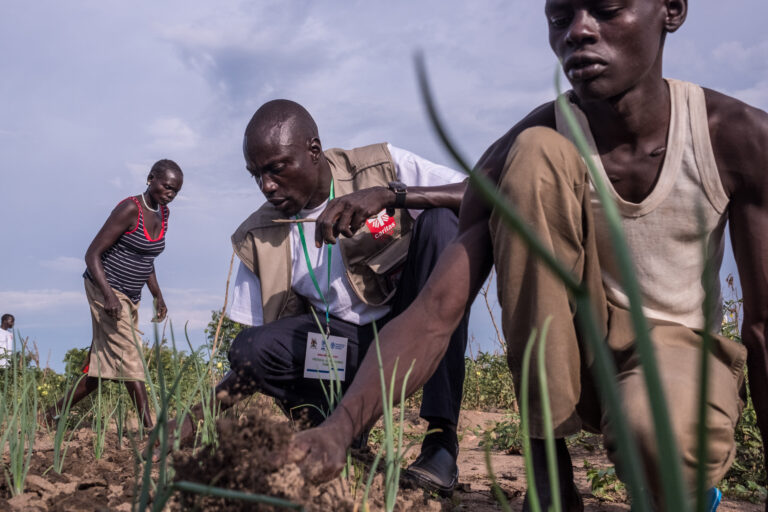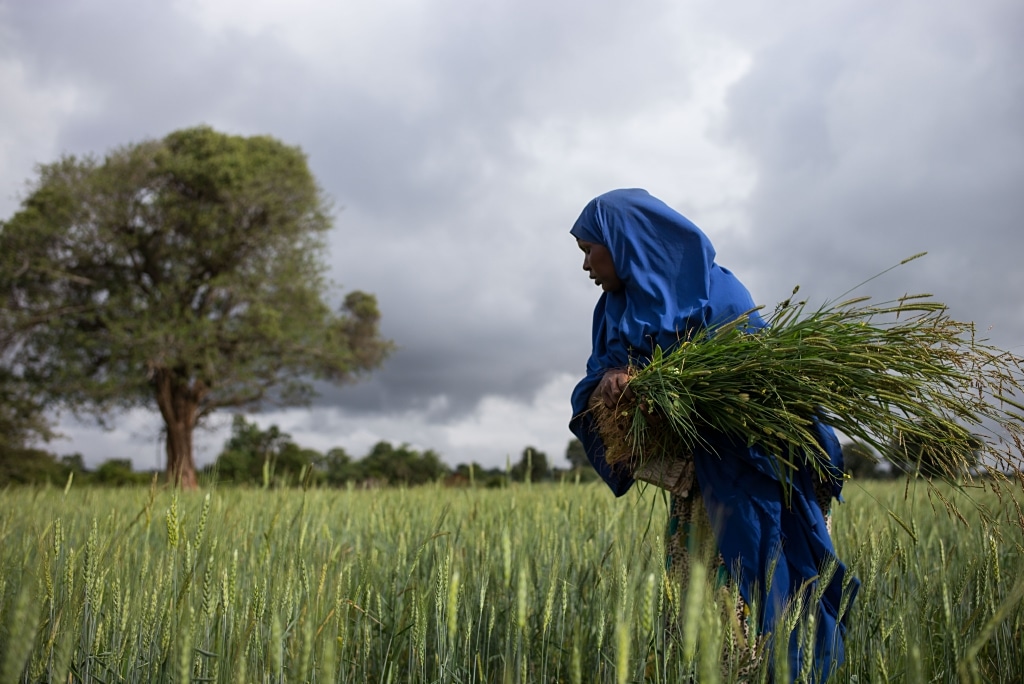As world leaders gather on September 23rd for the UN Food Systems Summit, Caritas Confederation expresses its concerns and reaffirms its core values about the future of food systems.
In a context where the world is struggling to get out of the ongoing COVID-19 pandemic and hunger, food insecurity and malnutrition are on the rise exacerbated by multiple humanitarian crises, Caritas Internationalis urges that all discussions and decisions about the world’s food systems must take place inside existing legitimate, multilateral, human rights-based and accountable institutions – such as the UN Committee on World Food Security – and must include local communities.
Instead, small-scale farmers in countries like Uganda lamented the Food Systems Summit conversation has remained among multinational corporations and big companies. Caritas organizations also express serious concern at a follow-up process that risks undermining the existing global food governance system and its underpinning democratic principles, namely, the announced “national transformation pathways” have not so far offered the necessary guarantees for effective participation and legitimacy.

Soro Steward, 32, a South Sudanese refugee and field officer for Caritas, demonstrates the right way to aerate the soil in a spring onion patch at a farmer field school in Bidibidi refugee camp in Uganda. Photo by Tommy Trenchard/Caritas
The July Pre-Summit held in Rome also displayed an over-reliance on technology and innovation as the solutions for the future, forged potentially elitist “global coalitions” and did not offer real space for public debate.
On that occasion, Pope Francis rightly stated that “[…] economic interests prevent us from conceiving of a food system that responds to the values of the Common Good, solidarity and the “culture of encounter”.
On the eve of this new meeting in New York, Caritas would like to reiterate the powerful message of the Holy Father, by stating that transforming food systems to ensure a just and sustainable future for all requires tackling the root causes of food insecurity, listening to and involving the poor, those who remain outside of high-level discussions among political leaders and powerful economic actors, those who are forgotten and ignored.
Caritas is convinced that food policies at all levels need to consider food systems holistically, addressing the causes and impacts of food insecurity in their interrelatedness, and foster the inclusion and participation of the most vulnerable.
Caritas also underlines the importance of science to take care of the Earth, our Common Home, including agroecology, the science of agricultural ecosystems that preserve their natural mechanisms and interactions and enables the production of safe and nutritious food. The practices and knowledge of small-scale farmers and farmers’ empowerment must be at the center of any innovation or technological outcome, and this requires investing in agroecology through adequately funded public programs, to achieve local sustainable solutions. For example, during the recent health emergency, in Bolivia communities and local partners of Caritas France promoted short marketing circuits to offer agro-ecological products to the population, demonstrating the resilience of territorial food systems and ensuring a healthy and diversified diet during quarantine periods.
More responsible food consumption is also needed for a purpose of justice, to make sure that also the most vulnerable people have access to sufficient food. A circular economy approach should re-orient the entire food value chain to prevent food loss and food waste.
In the light of the Laudato Si’ Encyclical, we call on the world leaders and policy-makers to finally listen to the cry of the earth and the cry of the poor to:
-
Transform food systems holistically, tackling the root causes of food insecurity and fostering the inclusion and participation of the most affected and vulnerable ones, such as small-scale farmers, in the legitimate spaces.
-
Preserve and incentivize local food systems, by urgently investing in community-based agriculture, promoting local markets, and adopting a circular economy model for the entire food value chain.
-
Invest in agroecology as the main pillar of food systems through adequately funded public programs.
Caritas Internationalis is a confederation of 162 members working at the grassroots in 200 countries and territories, whose role is to coordinate emergency operations, formulate development policy and advocate for justice.










